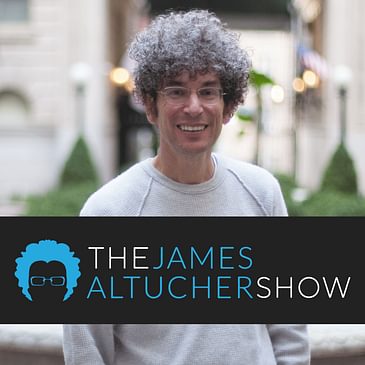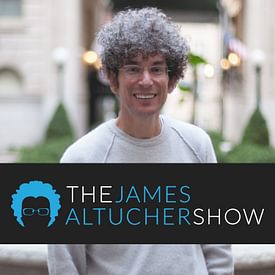A Note from James:
I'm confused. There are so many national and international issues being debated on constitutional grounds lately. For example, issues at the Texas border and federal versus state powers—like the case of friends versus the state of Colorado. Does a state have the right to decide who appears on the national presidential ballot?
Regarding COVID-19, I'm wondering if it was constitutional to close down all the businesses. It might have been the right decision, but does it infringe on our right to life, liberty, and property without due process?
I posed these questions to a renowned constitutional expert, the author of "The Odd Clauses," who is also a professor of constitutional law at Boston University, Jay Wexler. He provided insights into which recent events were constitutional and which may not have been. Here's what he had to say.
Episode Description:
James leads an enlightening conversation with Jay Wexler, a professor of constitutional law at Boston University and author of 'The Odd Clauses'. They explore topics ranging from state rights in decision-making, such as Texas' border policies and Colorado's stance on the national presidential ballot, to significant constitutional debates such as the power of the Supreme Court, the implications of COVID-19 business shutdowns, and the increasingly prominent discussions around freedom of speech and presidential powers.
Wexler provides deep insights into each topic, shedding light on the constitutional underpinnings and contemporary interpretations that inform these critical national discussions. The discussion also touches on potential constitutional conflicts and the nuanced understanding required to navigate these issues, with particular emphasis on the importance of Constitution's adaptability over time and the ongoing debate between originalism versus evolutionary interpretation.
Episode Summary:
01:00 Introduction: The Constitution in the News
01:46 Interview with Constitutional Expert Jay Wexler
02:33 The Life of a Law Professor
03:13 Challenges of Teaching in the Digital Age
04:49 Constitutional Battles in Recent Years
06:16 The Power of the Supreme Court
07:00 The Intricacies of Marbury v. Madison
08:34 The Role of the Supreme Court in the Executive Branch
11:38 The Texas Border Issue and Constitutional Merit
24:46 The Power of States in Deciding Presidential Candidates
33:18 Understanding the Qualifications for Presidential Candidates
36:06 Exploring the Impact of COVID-19 on Businesses and Constitutional Rights
37:34 The Lochner Era and its Influence on Business Regulations
40:20 Religious Rights and Restrictions during the COVID-19 Pandemic
44:22 The Controversial Topic of State Secession
51:31 The Intricacies of Freedom of Speech and its Boundaries
54:51 The Power and Limitations of Presidential Executive Orders
01:05:51 The Unusual Third Amendment and its Interpretation
------------
- What do YOU think of the show? Head to JamesAltucherShow.com/listeners and fill out a short survey that will help us better tailor the podcast to our audience!
- Are you interested in getting direct answers from James about your question on a podcast? Go to JamesAltucherShow.com/AskAltucher and send in your questions to be answered on the air!
------------
- Visit Notepd.com to read our idea lists & sign up to create your own!
- My new book, Skip the Line, is out! Make sure you get a copy wherever books are sold!
- Join the You Should Run for President 2.0 Facebook Group, where we discuss why you should run for President.
- I write about all my podcasts! Check out the full post and learn what I learned at jamesaltuchershow.com
------------
Thank you so much for listening! If you like this episode, please rate, review, and subscribe to “The James Altucher Show” wherever you get your podcasts:
Follow me on social media:





